David with the head of Goliath by Giovanni Battista Caracciolo known as Battistello
David with the head of Goliath by Giovanni Battista Caracciolo known as Battistello
Couldn't load pickup availability
SKU:Y743CCN0KXJ7C
BUY ONLINE, INSURED TRACEABLE DELIVERY
Unique quality material
Print on handmade paper from Amalfi
Measurement : 29 x 42 cm
Material : work printed on very fine handmade Amalfi paper with fringed edges
Frame : Handmade light brown solid beech wood
Print on pictorial canvas
Measurement : 60 x 40 cm
Material : work printed on very fine grain pictorial canvas
Frame : Light brown in beech wood and handmade wood pulp
YOU WANT A CUSTOMIZED PRODUCT
OR INFORMATION? WRITE TO US
The work
This painting, intended for the collection of Scipione Borghese, was attributed for the first time to Battistello Caracciolo by Filippo Todini in 1981.
Previously, Longhi had proposed other attributions, first to Orazio Borgianni and then to an anonymous artist from the Caravaggio period. However, the discovery of a document in the Borghese Archive mentioning the payment for the frame of "David, which Battistello made" in 1612 confirmed the attribution of the work to the Neapolitan artist and provided a certain date for the its realization.
Art criticism has highlighted the similarities between Battistello Caracciolo's work and Guido Reni's painting depicting the same subject, known in different versions. It is thought that Caracciolo was able to directly see Reni's painting, which may have been part of Camillo Borghese's collection while the Neapolitan artist worked on his version of the theme.
The technique used by Caracciolo in the painting is typical of the Caravaggio period, with a dark preparation for the ground and shadows, followed by light color additions for the figures, similar to Caravaggio's approach in his late Roman period.
In the painting, the figure of David stands on the right, portrayed slightly larger than life and shot from three-quarters. The scene is immersed in darkness, with a strong beam of light coming from the left that illuminates both the figure of David and the severed head of Goliath, creating a theatrical effect that emphasizes the victory of the young protagonist.
How reproductions are made
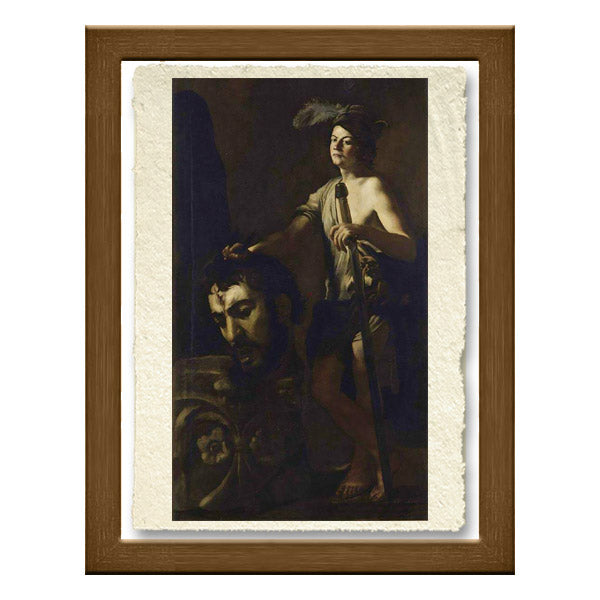
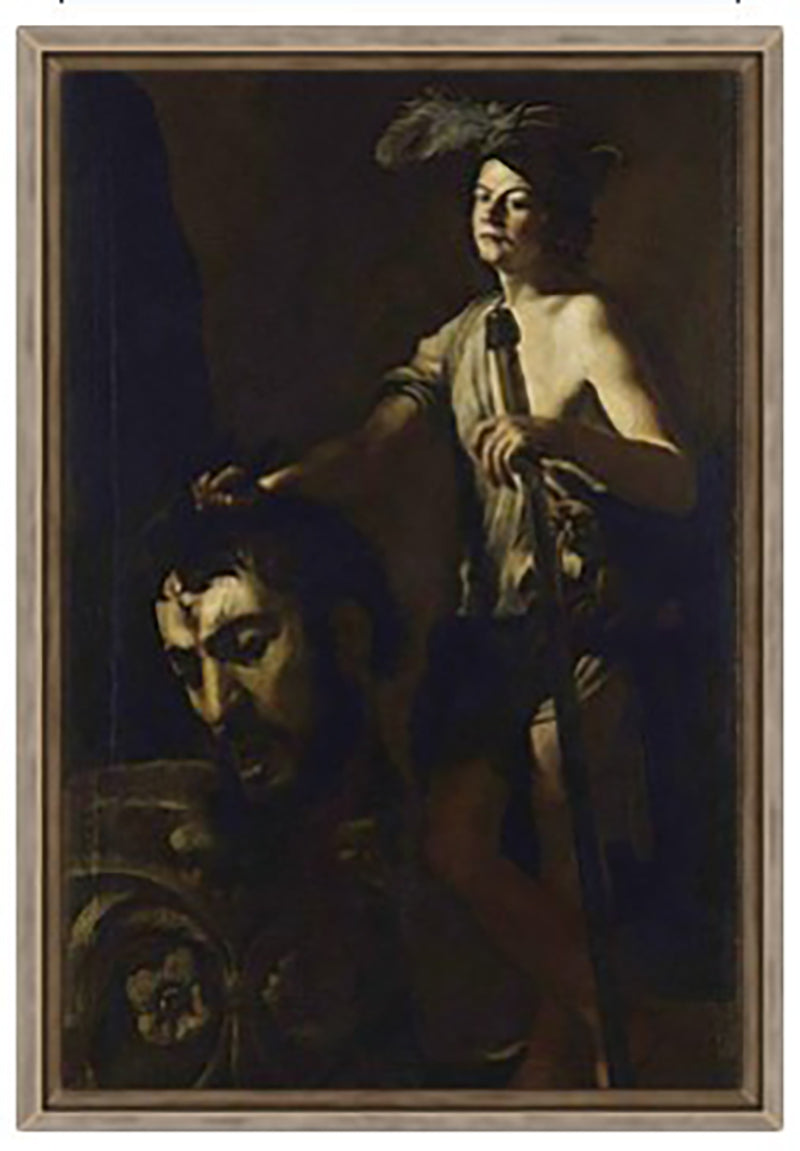
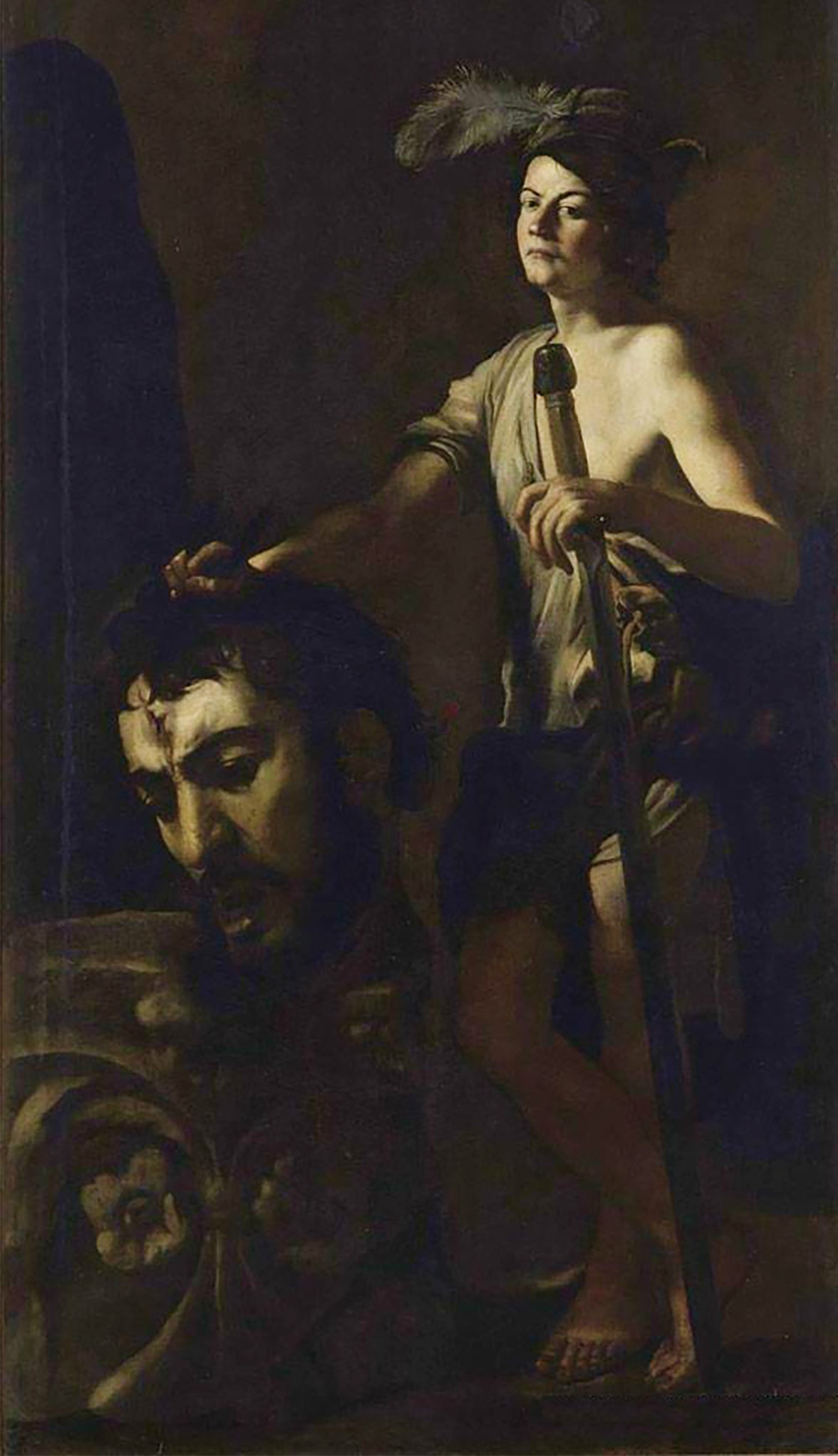
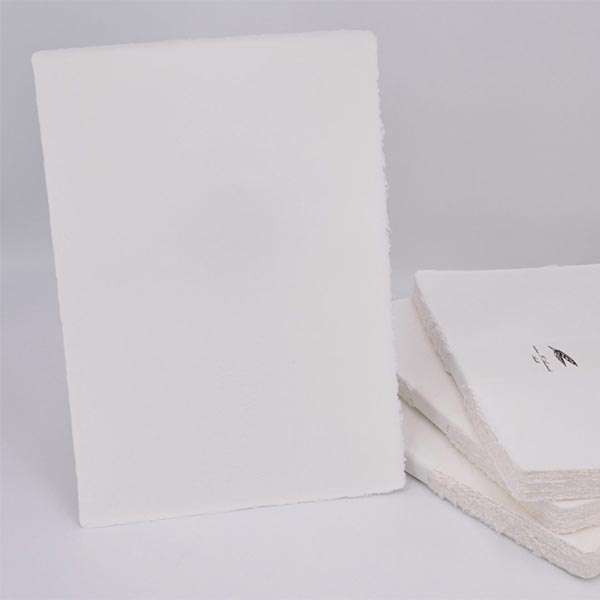
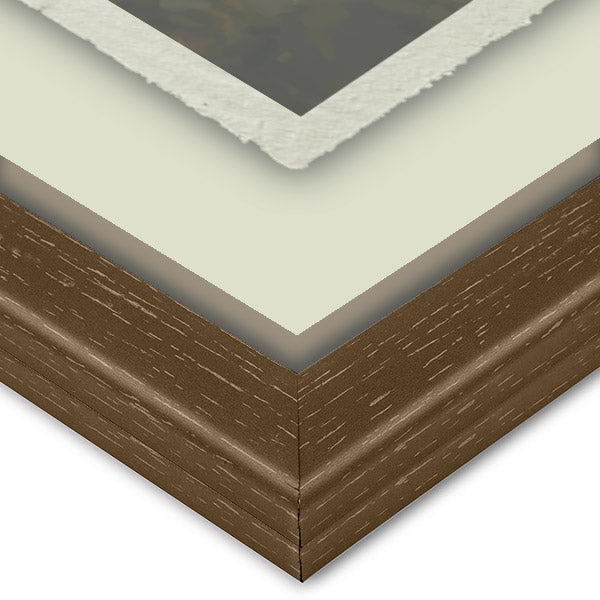
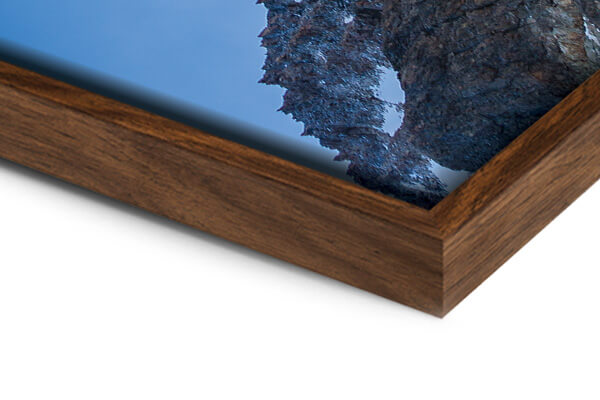
Scopri i pregiati materiali di Trizio Editore
Carta di Amalfi fatta a mano, cornice in legno di faggio e vetro museale. Guarda i particolari dei prodotti che renderanno la tua casa più elegante e preziosa.





